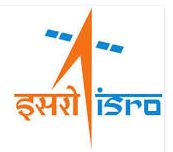

- Home»
- Apexbodies»
- ISRO»
Indian Space Research Organisation (ISRO) - Introduction
Naief Khatri

The developmental process of a nation has many facets. One of the most important is the advances in the space research and technology. In the post industrial society the geographical distance is no more a hurdle for dissemination of information and knowledge due to satellite aided technologies.
Indian Space Research Organisation (ISRO) was established under the aegis of the Department of Space (DOS) to develop space related programmes and technologies. ISRO in its efforts, towards making India self reliant is mainly in to developing satellites, launch vehicles, Sounding Rockets and associated ground systems.
ISRO has successfully developed two major space satellite systems – INSAT for communication, television broadcasting and meteorological services and the Indian Remote Sensing Satellites (IRS) for management of the natural resources.
Besides the above mentioned satellite systems, the ISRO has also successfully developed four satellite launch vehicles, SLV, ASLV, PSLV and GSLV, to place INSAT and IRS satellites in the required orbits.
The latest among its ambitious activities has been related to space mission: the Mars Orbiter Mission which is India’s first interplanetary mission to planet Mars with an orbiter craft designed to orbit Mars in an elliptical orbit. This was launched on 5 November, 2013 from Sriharikota.
The Mars Orbiter Mission, informally called Mangalyaan, successfully entered the orbit around Mars on 24 September, 2014, making India the first country to achieve success in its first attempt.
Related Links
Latest News
People Reading Now

CBSE Compartment Result 2023 OUT: Click For Direct Link



CSAB 2023: Special Round Registration Begins Today


